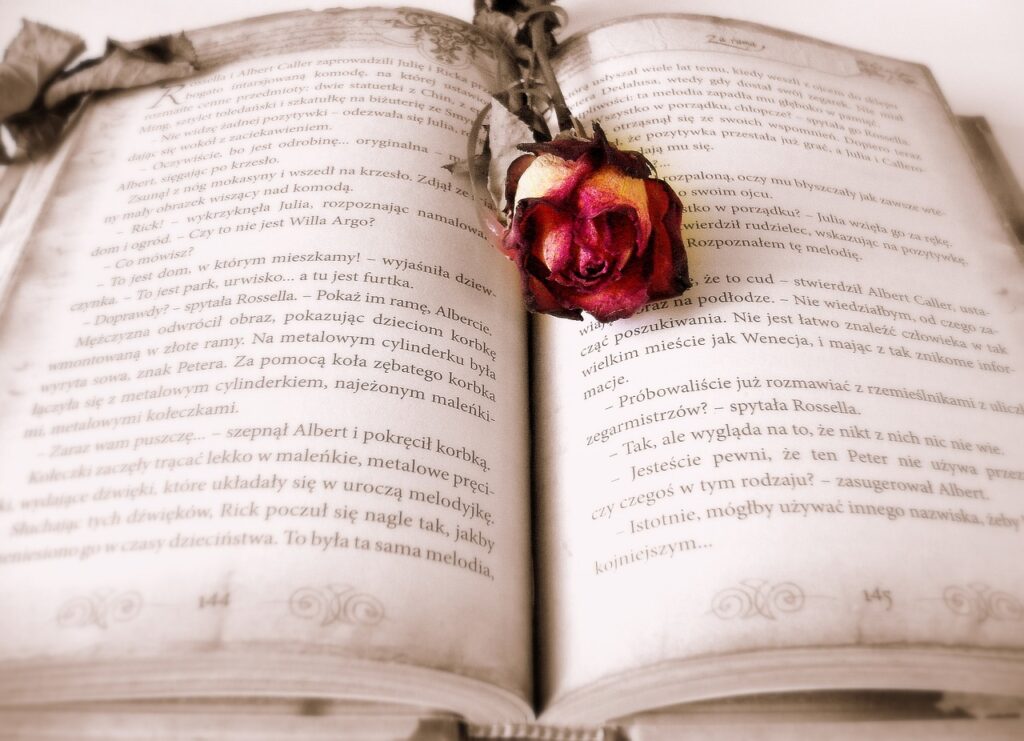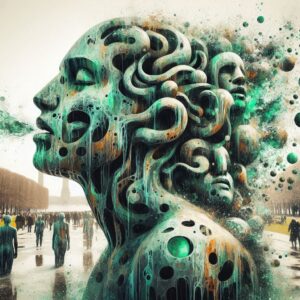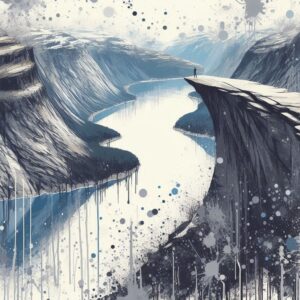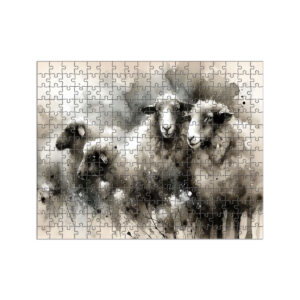
Explore & Play
Discover interesting topics and solve the accompanying crossword puzzle.
Polish Author Crossword | Discover Literary Giants
Table of Contents
Welcome to Our Exploration of Polish Literature!
To enrich your experience with Polish literature, we invite you to start with our engaging “Polish Author Crossword.” Dive into the crossword puzzle to test your knowledge of key Polish authors and their works.
If you’re new to this topic or want to build a solid foundation, we recommend starting with the article first. It provides valuable context and insights into the significant figures of Polish literature. Once you’re familiar with these literary giants, return to the crossword for an added challenge and deeper understanding.
Enjoy the journey through Poland’s rich literary heritage!
Polish Author Crossword
You can either fill in the crossword puzzle directly on this page or click the button in the bottom right corner to print it for free.

Celebrating Polish Literary Giants: From Mickiewicz to Tokarczuk
Introduction: A Rich Literary Tradition
Poland’s literary heritage is a tapestry of profound works and influential figures, each contributing to a rich tradition that spans centuries. Polish literature is celebrated not only for its historical significance but also for its innovative approaches and deep explorations of human experience. To delve into this illustrious tradition, we invite you to explore our “Polish Author Crossword,” which features key figures and their notable works. This crossword puzzle offers a fun and engaging way to familiarize yourself with Polish literature, or you can start with this article to gain a comprehensive understanding of its depth and breadth. Once you’re acquainted with the authors and their contributions, the crossword will be a great way to test your knowledge.
Romantic Era: Foundations of Polish Literature
The Romantic era was a defining period for Polish literature, characterized by its passionate exploration of national identity and personal freedom. This era laid the groundwork for much of what defines Polish literary tradition today.
Adam Mickiewicz was a monumental figure of Polish Romanticism. His epic works, such as Pan Tadeusz, not only captured the spirit of the Polish nation but also became a symbol of Polish cultural identity. Mickiewicz’s writing, rich in its portrayal of Polish landscapes and its reflection on national struggles, remains a cornerstone of Polish literature.
Similarly, Juliusz Słowacki contributed significantly to the Romantic movement with his evocative poetry and dramatic works. His plays and poems, including Kordian, are celebrated for their complex characters and exploration of existential themes. Słowacki’s work reflects his deep engagement with Poland’s political and social issues.
Zygmunt Krasiński also played a crucial role in shaping the Romantic landscape with his visionary and often melancholic works. His drama Nie-Boska Komedia (The Undivine Comedy) is a critical reflection on the political and social upheavals of his time, showcasing his unique perspective within the Romantic tradition.
The Interwar Period: Innovation and Experimentation
The interwar period brought a wave of experimentation and innovation in Polish literature, reflecting the complex socio-political landscape of the time. This era was marked by a departure from traditional forms and an embrace of new narrative techniques.
Witold Gombrowicz was a key figure in this movement, renowned for his avant-garde style and subversive narratives. His novel Ferdydurke challenges conventional literary forms and explores themes of identity and societal norms with a blend of humor and absurdity.
Tadeusz Borowski is another prominent author from this period. His collection This Way for the Gas, Ladies and Gentlemen offers a harrowing account of life in Auschwitz, using stark, poignant language to convey the brutal realities of wartime existence.
Bruno Schulz, with his magical realism and lyrical prose, added a unique voice to Polish literature. His collection The Street of Crocodiles presents a surreal and evocative portrayal of life in interwar Poland, blending fantasy with deep psychological insight.
Post-War Era: Exploring New Voices
The post-war era in Poland saw a transformation in literary voices, with authors addressing the realities of a changing world through new perspectives. This period produced works that dealt with the aftermath of war and the challenges of rebuilding society.
Czesław Miłosz emerged as a significant literary figure, his works reflecting the moral and philosophical dilemmas of his time. His poetry and essays, including The Captive Mind, earned him the Nobel Prize in Literature in 1980, recognizing his profound impact on both Polish and global literature.
Wisława Szymborska, another Nobel laureate, is celebrated for her poetry that combines philosophical depth with everyday observations. Her collection View with a Grain of Sand exemplifies her ability to blend wit, irony, and existential reflection in a deeply accessible manner.
Jerzy Grotowski, though primarily known for his contributions to theater, also influenced literary forms with his innovative approaches to performance and storytelling. His work redefined the relationship between literature and performance art, enriching the post-war literary landscape.
Contemporary Voices: Modern Polish Literature
Contemporary Polish literature continues to thrive, with modern authors pushing boundaries and gaining international recognition. This era has seen a diverse range of voices and genres, reflecting Poland’s evolving cultural and social landscape.
Olga Tokarczuk has gained international acclaim for her thought-provoking and imaginative works. Her novel Flights explores themes of travel, identity, and human connection, earning her the Nobel Prize in Literature in 2018. Tokarczuk’s innovative narrative techniques and deep exploration of human experience have established her as a leading figure in contemporary literature.
Andrzej Sapkowski is renowned for his contributions to the fantasy genre. His series The Witcher has captivated readers with its richly developed world and complex characters, gaining a global following and inspiring successful adaptations in various media.
Mariusz Szczygieł offers a distinctive voice in modern Polish non-fiction. His works, including Gods of the North, explore contemporary Polish society with keen insight and a blend of journalistic rigor and literary flair.
Influence and Legacy: Polish Literature’s Global Reach
Polish literature’s influence extends beyond national borders, resonating with readers worldwide and shaping global literary traditions. The international recognition of Polish authors highlights their contributions to the broader literary landscape.
The translation of works by authors like Czesław Miłosz and Wisława Szymborska has introduced Polish literature to a global audience, allowing readers across the world to engage with their profound insights and narratives. Their influence is evident in the way their themes and styles have been integrated into various literary traditions.
Olga Tokarczuk and Andrzej Sapkowski have also made significant strides on the global stage, with their works being translated into numerous languages and receiving accolades in international literary circles. Their success underscores the growing appreciation for Polish literature worldwide.
Thematic Exploration: Common Themes in Polish Literature
Polish literature often delves into themes of national identity, existentialism, and personal struggle, reflecting the country’s historical and cultural experiences. These themes provide a rich field for exploration and offer insights into the Polish psyche.
Themes of identity and belonging are prominent in the works of Adam Mickiewicz and Olga Tokarczuk, exploring the complexities of personal and national identity. Existential questions and moral dilemmas are central to Czesław Miłosz’s poetry and Wisława Szymborska’s reflections, offering profound insights into human experience.
The exploration of social and political issues, as seen in the works of Tadeusz Borowski and Witold Gombrowicz, reflects the tumultuous historical context of Poland and provides a lens through which to understand broader human struggles.
The Role of Women in Polish Literature
Women have played a crucial role in shaping Polish literature, bringing diverse perspectives and innovative voices to the forefront. Their contributions have enriched the literary landscape and offered new insights into Polish society.
Wisława Szymborska is celebrated for her contributions to poetry, offering a unique perspective on everyday life and philosophical questions. Her ability to combine wit with deep existential reflection has made her one of the most influential poets of the 20th century.
Olga Tokarczuk has also made significant contributions to contemporary literature, with her imaginative and thought-provoking works gaining widespread acclaim. Her exploration of complex themes and innovative narrative techniques highlights the vital role of women in modern Polish literature.
Embracing the Rich Tapestry of Polish Literature
Polish literature, rich in history and diversity, offers a treasure trove of stories that reflect the soul of a nation. From the foundational works of Adam Mickiewicz and Juliusz Słowacki to the contemporary voices of Olga Tokarczuk and Andrzej Sapkowski, the authors discussed in this article represent the breadth and depth of Poland’s literary heritage. By exploring these works, you gain insight into the lives and landscapes of Poland and connect with universal themes of identity, nature, and human experience. As you continue your literary journey, may these authors inspire you to delve deeper into the world of Polish literature and discover the stories that have shaped a nation.
Share to...
I hope you enjoy the content.
Want to receive our daily crossword puzzle or article? Subscribe!
You may also be interested in
Share to…
Want to receive our daily crossword puzzle?
-
Jigsaw Puzzles
Vigeland Park Fantasy Puzzle 250 | 300 | 500 Pieces
kr 348,00 – kr 439,00Price range: kr 348,00 through kr 439,00 Select options This product has multiple variants. The options may be chosen on the product page -
Jigsaw Puzzles
Trolltunga Abstract Jigsaw Puzzle 250 | 300 | 500 Pieces
kr 348,00 – kr 439,00Price range: kr 348,00 through kr 439,00 Select options This product has multiple variants. The options may be chosen on the product page -
Jigsaw Puzzles
Enchanting Four Sheep Zodiac Jigsaw Puzzle 250 | 300 | 500 Pieces
kr 348,00 – kr 439,00Price range: kr 348,00 through kr 439,00 Select options This product has multiple variants. The options may be chosen on the product page

















